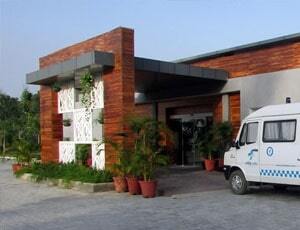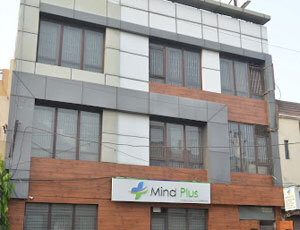Extreme mood swings characterized by emotional highs (mania or hypomania) and lows (depression) are the characteristic features of bipolar disorder, formerly known as manic depression.
When you're depressed, you could experience feelings of sadness or despair as well as lose interest in or pleasure from most things. Mania or hypomania, which is less severe than mania, can cause mood swings that include euphoria, excessive energy, or extraordinary irritability. Sleep, energy, activity, judgment, behavior, and the capacity for thinking clearly can all be impacted by these mood changes.
Mood swing episodes may occur infrequently or frequently throughout the year. Some people may not have any emotional symptoms in between bouts, but most people will. Even though bipolar disorder is a lifelong diagnosis, you can control other symptoms like mood swings by adhering to a treatment plan. The majority of the time, psychotherapy and medication are used to manage bipolar disorder.
Although the exact cause of bipolar disorder is uncertain, several factors, including:
Bipolar disorder and its linked disorders come in various forms. They could consist of depression and mania or hypomania. The unpredictability of mood and behavior swings brought on by symptoms can cause severe discomfort and make living challenging.
Bipolar II disorder is a distinct diagnosis rather than a less severe variation of bipolar I illness. People with bipolar II condition may experience prolonged periods of depression, which can significantly hinder their lives, in contrast to the extreme and hazardous manic episodes associated with bipolar I disorder.
While bipolar disorder may develop at any age, it is usually identified in adolescence or the early twenties. Distinctive variations in symptoms as well as changes in symptoms over time are possible.
An episode of manic or hypomanic behavior involves three or more of the following symptoms-
To diagnose bipolar disorder, your assessment can consist of the following:
Psychiatrists, medical professionals who specialize in the diagnosis and treatment of mental health diseases, are suitable individuals to advise treatment decisions for bipolar disorder and related illnesses. A psychiatric nurse, social worker, and psychologist might also be on your treatment team.
Even though there is no known treatment for bipolar disorder, sufferers may go for extended periods without experiencing any symptoms. Long-term mood stability is achievable for bipolar disorder sufferers with continued medication and self-management. During periods of recovery, people could have minimal or absent symptoms.
While some bipolar disease sufferers may have periods of recovery, others might not. Everybody's experience with the illness and its care is unique. It is crucial to keep looking for methods to improve treatment rather than placing the blame on the patient if they continue to experience symptoms despite receiving treatment. Numerous individuals with the illness frequently experience recurrent mood difficulties.

Kalka, India
MindPlus, Kalka aims to change the way mental health is perceived and treated in North India. The he...more
![]() Local Tourism Options
Local Tourism Options
![]() SIM
SIM
![]() Airport Pick up
Airport Pick up
![]() Mobility Accessible Rooms
Mobility Accessible Rooms

Ludhiana, India
MindPlus, Ludhiana, has values that aim to change the way mental illnesses are understood and treate...more
![]() Mobility Accessible Rooms
Mobility Accessible Rooms
![]() Airport Pick up
Airport Pick up
![]() Online Doctor Consultation
Online Doctor Consultation
![]() Airport Transfer
Airport Transfer

Psychiatrist
Ludhiana, India
1 of experience
USD 18 for video consultation

Psychiatrist
Ludhiana, India
5 of experience
USD 36 for video consultation

Psychiatrist
Ludhiana, India
3 of experience
USD 36 for video consultation
Q. What are the causes of bipolar disorder?
A. The actual causation of bipolar disorder is unknown, however various factors, such as: Biological distinctions: Bipolar disorder patients seem to experience neurological changes in their brains. Although the importance of these changes is not yet clear, they may eventually point to their root causes. Genetics: People who have a first-degree family with the disorder, such as a sibling or parent, are more likely to experience bipolar disorder. Researchers are looking for genes that might contribute to the development of bipolar disorder.
Q. What are the treatment modalities available for Bipolar Disorder?
A. Bipolar disorder is a serious mental illness. A person during the illness may not know that he/she has a mood-related disorder. But, the changes in the person’s mood, behavior, and thoughts can be observed by others. Due to illness disturbances in routine, relationships, and workplace are often observed.For the management of the symptoms, hospitalization is recommended. Also as there are risks to self and others, inpatient treatment helps manage it better.
Q. What are the types of Bipolar Disorder?
A. Bipolar I Bipolar 1 may be identified if you have gone through the following: At least one manic episode that lasted more than a week. Although not everyone experiences depression episodes, some do. Bipolar II If you have gone through both of the following, you can be diagnosed with bipolar 2: at least one episode of depression. hypomanic symptoms that have persisted for at least four days. Cyclothymia Cyclothymia could be identified if: Over the past two years or more, you've encountered both hypomanic and depressive mood episodes. The bipolar 1 or bipolar 2 diagnosis criteria are not met by your symptoms. Cyclothymia can occasionally progress to bipolar 1 or bipolar 2 disorder.